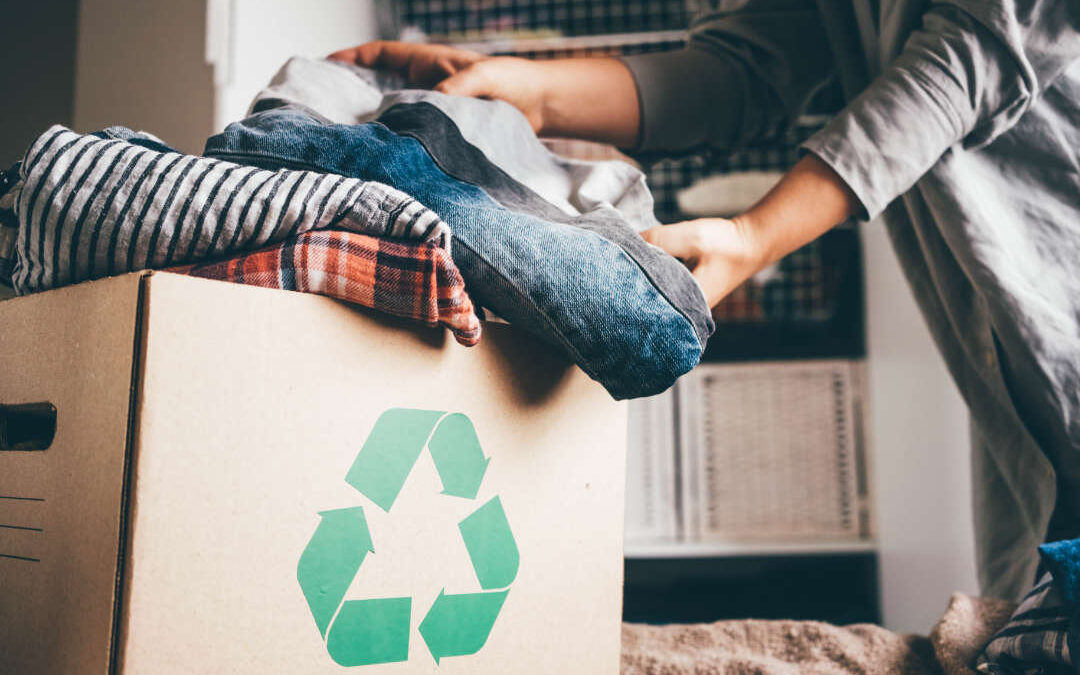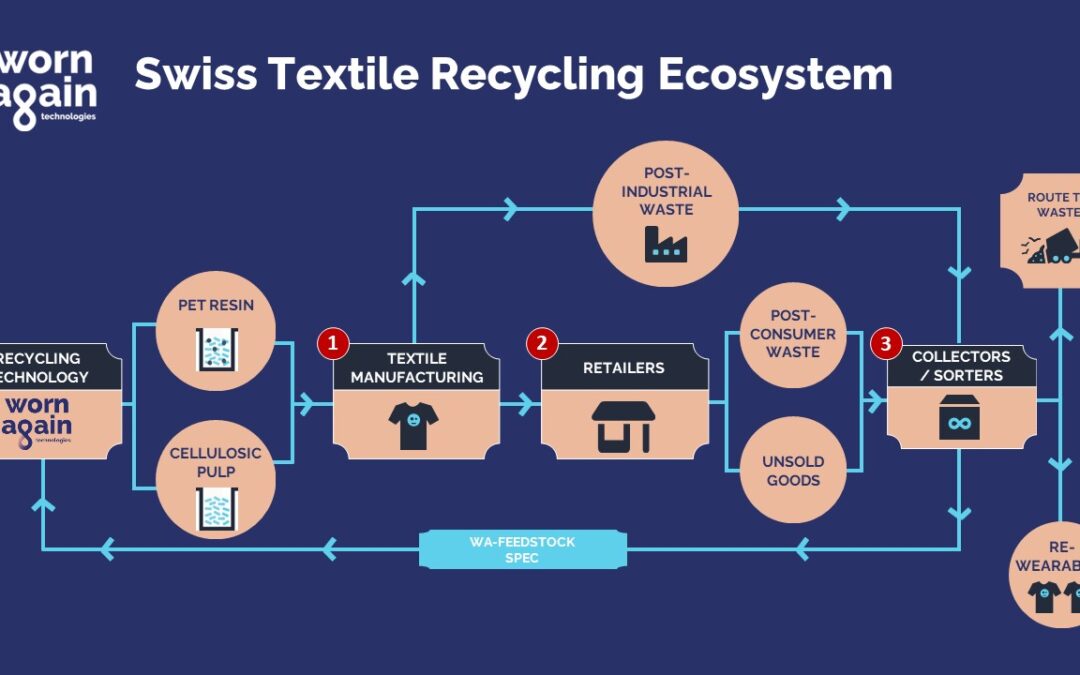
Jun 15, 2023
About Us News Worn Again Technologies draws closer to full textile circularity Worn Again Technologies is helping to evolve the supply chain of feedstocks needed for the development of a global, circular and more sustainable textile industry by participating in an...

Jun 14, 2022
About Us News Weaving a network of circularity The creation of Swiss Textile Recycling Ecosystem marks a key milestone in the upscaling of Worn Again Technologies’ recycling process technology. Worn Again Technologies initiates Swiss Textile Recycling Ecosystem Worn...

May 31, 2022
About Us News The circular textile economy is rapidly approaching Worn Again Technologies has announced plans to build a new textile recycling demo plant in Winterthur Switzerland. Worn Again Technologies announces plans to build a new textile recycling demo plant in...




